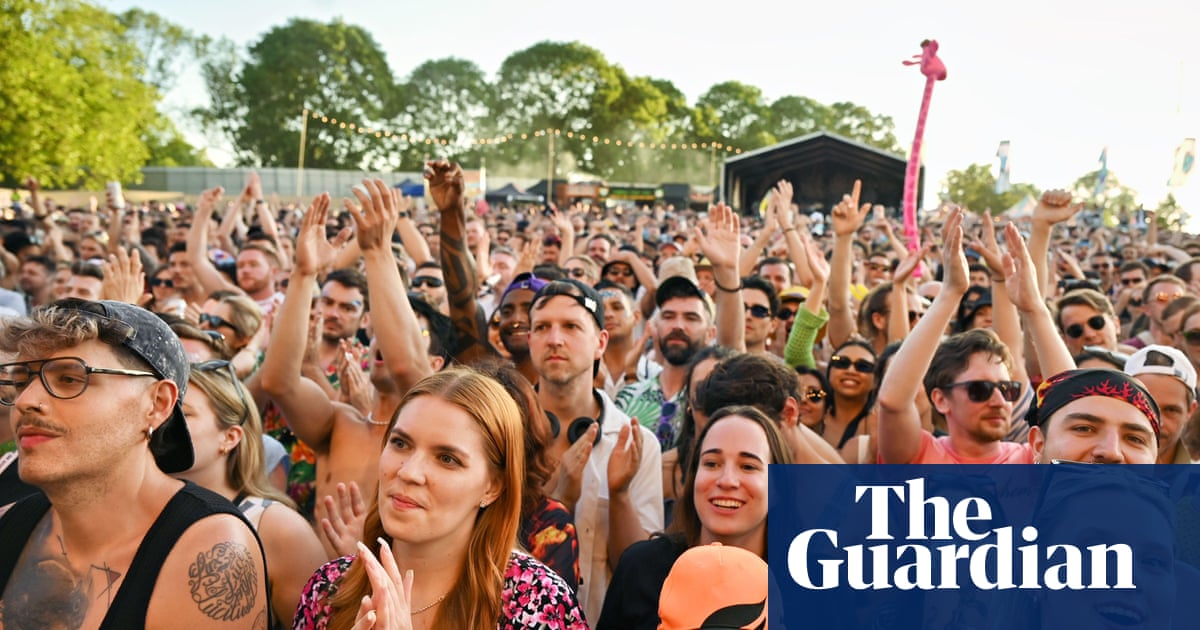Organisers of the embattled music festival series Brockwell Live, held in Brockwell Park in south London, have said their events will go ahead despitea successful legal challenge against Lambeth council.
The park, in Herne Hill, hosts tens of thousands of people at the festivals Wide Awake,Field Day, Cross the Tracks, City Splash and Mighty Hoopla, as well as the family festival Brockwell Bounce and the Lambeth Country Show.
A residents’ group, Protect Brockwell Park (PBP), had opposed the events, which require closing off sections of the park to the public for a number of weeks. They had argued the events were “damaging Brockwell Park’s ecology” – including the park’s grass as a result of large crowds and heavy equipment – as well as its “heritage and community value”.
The campaign reached the high court, which examined whether Lambeth council was right to assert that the planned use of the land was lawful, given that the 37-day duration of the festivals exceeded the 28 days allowed for a temporary change of use. A judge found in favour of PBP, saying the council’s decision was “irrational”.
Solicitors for the group subsequently called on Lambeth council to cancel the events, saying: “As there is no planning permission for the Brockwell Live event, the event has to be cancelled. The site now has to be made immediately available to the public and cleared of the fencing and infrastructure.”
But Brockwell Live has said all the events will go ahead. “Friday’s high court ruling dealt with a particular point of law and whether an administrative process had been carried out correctly,” the company said in statement. “We wish to make it clear that no event will be cancelled as a result of the high court’s decision. We take our stewardship of Brockwell Park seriously. As we prepare to deliver these much-loved, culturally significant events, we remain fully committed to its care, upkeep, and long-term wellbeing. With setup nearly complete, we look forward to opening the gates and welcoming festival goers later this week.”
Lambeth council also said the events would go ahead, stating that Summer Events Limited, the company behind Brockwell Live, “has applied to Lambeth council for a new certificate of lawfulness, for 24 days, following the high court ruling last week on the previous certificate. The council is urgently considering that application. That consideration does not stop the events proceeding.”
The PBP campaign, which was supported by cultural figures such as Mark Rylance, led to considerable debate acrossLondonand the live music industry.
Some sided with PBP, arguing that it was an example of the private sector being allowed to encroach on a public asset. Others argued that the festivals enriched the culture of the area as well as local businesses.
After the high court judgment, Night Time Industries Association chief Michael Kill said: “The supply chain, from staging and lighting companies to local food and drink vendors, would suffer heavy financial losses,” and added that “these events are not just concerts – they are vital social experiences that form part of the cultural fabric of people’s lives”.
The dispute sets up a potential battle over any events planned for 2026. Rebekah Shaman, who led the PBP campaign, has previously said: “We are hoping to come to an agreement where events can still continue, but on a much lower level and also much more connected to the community,” while a PBP statement said the group were “not anti-events” and looked forward to constructive discussion with Lambeth council in future.
Though it can now go ahead, Field Day festival is facing a separate crisis, with numerous artists pulling out of the lineup.
The festival’s promoter Superstruct is owned by parent company KKR, an investment firm with holdings in Israel. Campaigners wrote an open letter stating that “the festival is now implicated in the crimes against humanity of apartheid and genocide”, and called on Field Day to “publicly distance itself from KKR”. Artists and organisers such as Midland and Sisu Crew subsequently pulled out of the festival after Field Day did not make a statement to that effect.
Field Day has responded, saying: “As a high-profile event operating in a global context, our team, of course, recognises the strength of feeling of the artists involved and the fans who attend. The open letter itself says that this situation is ‘not the choice of Field Day’ and we are sorry that some artists have chosen not to perform at this year’s festival.”
Mighty Hoopla, which is also run by Superstruct, has put out its own statement reading: “Information has come to light about KKR’s unethical investments, particularly in complicit Israeli corporations, which directly counter what we stand for as a festival … we wish to state our clear opposition to KKR’s unethical investments.”
The Guardian has contacted representatives for KKR for comment.
